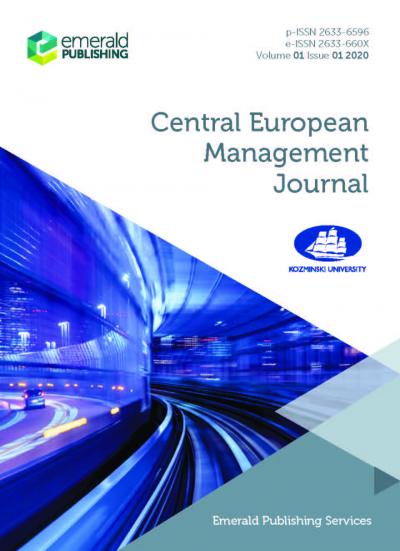Knowledge Management and Economic Growth: The Assessment of Links and Determinants of Regulation
Olena Oliinyk
The National University of Water and Environmental Engineering (Ukraine)
Yuriy Bilan
Tomas Bata University in Zlin
Halyna Mishchuk
The National University of Water and Environmental Engineering (Ukraine)
10/2021 29 (3) Central European Management Journal
DOI 10.7206/cemj.2658-0845.52








